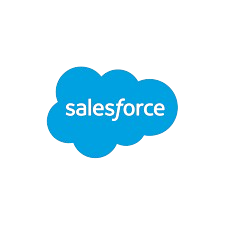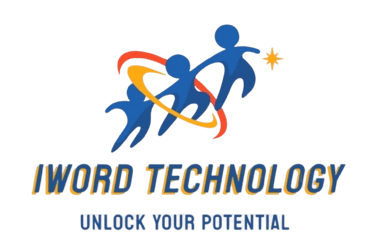The Value of a Salesforce Internship
Internships in Salesforce (or with companies using Salesforce) are more than just a way to get your foot in the door. They offer benefits that can shape your career trajectory:
9/12/20255 min read


Real-World Exposure
As an intern, you work on actual business challenges—building flows, automations, integrations, or UI components. You see how data models are used, how security & permissions are handled, how a production org is maintained. This hands-on experience is hugely valuable.Learning Best Practices
In a real organisation you’ll see patterns: code reviews, version control, testing, performance considerations, documentation, deployment pipelines. These are things you don’t always learn in tutorials, but are essential in enterprise settings.Networking & Mentorship
Interacting with senior developers, architects, admins, and product folks can teach you a lot. Mentors can guide what to study, how to solve problems, how to architect solutions. Internships often lead to full-time offers or strong references. Salesforce’s own programs (Futureforce, etc.) emphasize this. Salesforce+3Salesforce+3Salesforce+3Understanding the Ecosystem
Salesforce isn’t just Apex code. There’s declarative development (Flows, Process Builder, etc.), metadata, configuration, security, sharing rules, integrations (APIs, web services), AppExchange packages, multiple clouds (Sales, Service, Marketing, etc.), data (structure/unstructured). Internships help you see how all of this fits together.Career Clarity
Through internship you discover what you like / don’t like – whether you prefer coding, admin work, integrations, UX, AI, data, custom features, etc. Helps you decide what specialisation to pursue.
Building a Career in Salesforce Development
Here are steps & tips if you want to build a solid career as a Salesforce Developer (or technical role in the Salesforce ecosystem):
StepDetails / TipsFoundational LearningLearn the basics: what is CRM, what problems Salesforce solves; understand data model (objects, fields, relationships), security (profiles, roles, sharing), declarative tools (Flows, Process Builder, etc.). Use Trailhead (official free learning paths).Coding SkillsLearn Apex (Salesforce’s server-side language), SOQL (Salesforce Object Query Language), Lightning Web Components (LWC) for front-end work. Also JSON, REST/SOAP APIs, basics of integrations.CertificationsGet certified: Salesforce Certified Administrator, Platform App Builder, Platform Developer I, then Developer II etc. Certifications help you formally validate skills.Hands-on ExperienceBuild sample projects: custom apps, triggers, LWC components, integration using external APIs. Contribute to open source, do hackathons, build in Developer Edition orgs. If possible, an internship.Understanding Tools & EcosystemLearn about DevOps for Salesforce (e.g. Metadata API, CI/CD, packaging), version control (Git), Sandboxes vs Production environments, monitoring and performance. Know the major clouds (Sales, Service, Marketing, etc.), AppExchange.Stay UpdatedSalesforce evolves rapidly—new releases, new features (e.g. AI tools, automation enhancements). Follow release notes, blogs, webinars. Be aware of AI trends, Agentforce, etc.Soft Skills / Domain KnowledgeProblem-solving, communication, understanding business domain (sales, service, etc.). Being able to talk with non-technical stakeholders, gather requirements, designing solutions that scale and maintainable.
With this approach, a junior developer could map out a 1-2 year plan to go from apprentice/intern level to a mid level, or specialization (Integration, AI / Automation, etc.).
Agentforce: AI Agents in Salesforce + How to Implement
One of the recent innovations in Salesforce is Agentforce (the platform’s AI-agent framework). It allows you to build autonomous agents that can take action, reason, retrieve data, act on behalf of users—not just respond to queries like a chatbot. investor.salesforce.com+3investor.salesforce.com+3Salesforce+3
What is Agentforce? Key Features
Out-of-the-box agents: pre-built agents that can handle common use cases (customer service, lead qualification, order inquiries, etc.) which you can customise. investor.salesforce.com+2investor.salesforce.com+2
Agent Builder: a low-code/no-code tool for defining topics (intents), writing instructions, setting up actions (flows, prompts, Apex, APIs) that the agent can perform. investor.salesforce.com+1
Integration with Salesforce platform: uses Data Cloud for unified data, connects to existing flows, Apex, APIs, metadata; built-in security, compliance. investor.salesforce.com+2Salesforce+2
The Atlas Reasoning Engine: under the hood, breaking down tasks/plans, ensuring agents can reason, not just mapping keywords to actions. investor.salesforce.com+1
Why Implement Agentforce (Business Benefits)
Automating repetitive tasks (customer inquiries, lead qualifying, routing, etc.), freeing up human agents to focus on complex tasks. investor.salesforce.com+1
Improving speed, availability, consistency (agents can work 24/7, be consistent, don’t get fatigued).
Scaling: as business grows, building/maintaining more human agents is costly; AI agents scale more easily.
Better customer experience: faster responses, more context-aware because of integrated data, ability to escalate to human when needed.
How to Implement Agentforce: Step-by-Step / Best Practices
Here’s a general roadmap if you (or your company) want to build AI agents in Salesforce using Agentforce:
Define the Use Case(s)
What tasks do you want the agent to do? E.g. answer FAQs, route cases, qualify leads, escalate to humans, fetch data, update records, etc.
Prioritize tasks that are repetitive, rule-based, with well defined triggers or inputs.
Prepare the Data & Knowledge Sources
You need both structured data (e.g. Salesforce records: Leads, Cases, Accounts) and unstructured data (knowledge articles, documentation, emails, etc.). Agentforce works better when it can access accurate, relevant content. Salesforce+1
Organize knowledge articles; ensure permissions and access are correct. Ensure data quality.
Design Topics, Instructions, and Actions
Topics = what the agent should understand (intents or categories).
Instructions = natural language or rules that guide how it responds or acts.
Actions = the possible tasks or workflows: triggers, flows, Apex code, API calls.
Build and Test in a Sandbox / Dev Org
Use Agent Builder to configure agents. Implement flows, prompts. Maybe write some custom Apex where needed.
Test comprehensively: edge cases, wrong inputs, fallback to human agents, security & privacy.
Monitor & Iterate
After deploying, track performance: how many cases handled by the agent, success rate, escalation rate, customer satisfaction.
Collect feedback; adjust topics/instructions/actions. Keep the knowledge base up to date.
Governance & Responsible AI Considerations
Be mindful of data privacy and security. Agents must only have access to data appropriate to their scope.
Guardrails: for example, limit actions that can change records, use approval flows if required.
Plan for auditing / logging agent actions.
Scale & Expand
Once a few agents are performing well, expand to other use cases or departments. Reuse topics or templates. Use partner agents or AppExchange if available. investor.salesforce.com+1
Putting It All Together: Salesforce Internships + Agentforce + Development Career
How do these threads connect? If you’re someone looking to start via internship and build a career that includes Agentforce / AI-agent experience, here’s how you could plan it:
During your internship, try to get exposure to areas like the declarative tools (Flows, Process Builder), data models, maybe assist in small automation projects.
Learn about Salesforce’s AI developments (Agentforce, Data Cloud, prompt building) through Trailhead, blogs, webinars. If possible, propose intern projects that touch AI agents: e.g., a prototype agent that answers internal support queries or something simple.
After internship, aim for roles like Junior Salesforce Developer or Admin, then build your skills in Apex, LWC, integration, etc.
Once you're comfortable, specialise: take on projects involving Agentforce or AI implementation. Learn the best practices listed above.
Keep building your portfolio: showcase projects where you built agents, automation, flows, integrations, etc. These can distinguish you in interviews.
Stay ahead: AI is rapidly evolving in Salesforce ecosystem. Being one of the early people skilled in Agentforce will likely give you a competitive edge.
Conclusion
A Salesforce internship is more than just a resume line—it's a launching pad. It gives you exposure, mentorship, understanding of real business processes, and an entry into a fast-growing, evolving ecosystem. Pair that with emerging technologies like Agentforce, which bring AI agents into everyday workflows, and you have an exciting path to build a high-impact career.
Iword Technology
Contact Now for more Enquire
Info@iword.in
+91 9373488196
1)Guru dev Nagar.
Nagpur
